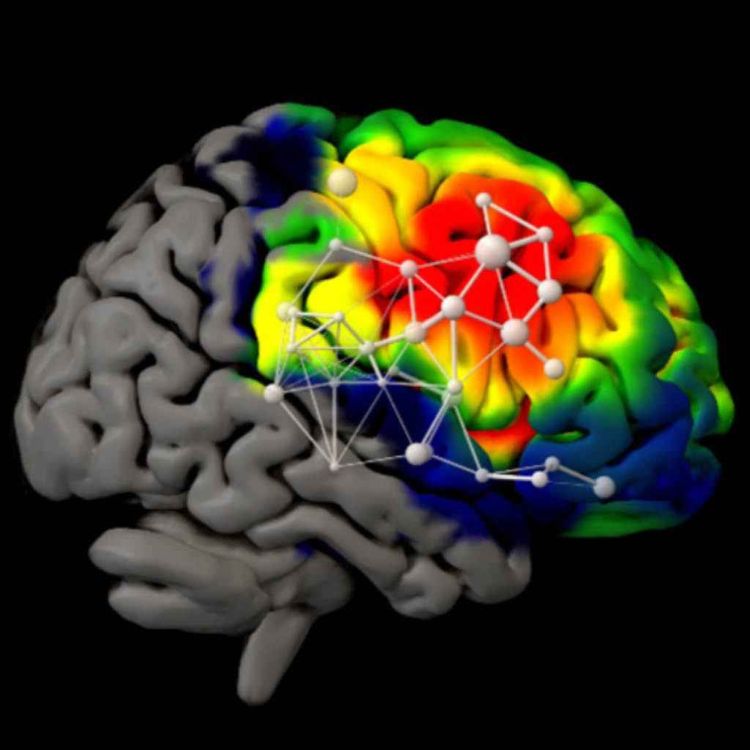Share

Tech and Science Daily | The Standard
Brain injury patients help find location of logical thinking
Season 1
•
Scientists have identified the key brain regions essential for logical thinking and problem solving. The study involved a survey of patients who have suffered a brain injury from either a stroke or tumour. To explain the results, including the development of two new tests of reasoning, we’re joined by lead author, Dr Joseph Mole from UCL Queen Square Institute of Neurology and Department of Neuropsychology at UCLH.
Also in this episode:
- The origins of water on Earth is challenged in a new study
- Rapid rise in e-cigarettes 'stalls' ahead of a nationwide ban on single-use vapes, study suggests
- Two new species of dinosaur discovered in China within a 125-million-year-old fossil
For all the latest news head to standard.co.uk
More episodes
View all episodes

London’s historic womb transplant birth, UK regulates Netflix-style streamers, Uber’s robotaxi play, and Firefox’s AI off switch
07:29||Season 1Al’s on today’s proper jaw-dropper: London doctors announce a UK first — a baby born after a womb transplant from a deceased donor. Then it’s back to the paperwork side of the future as the government drags Netflix, Prime Video and the rest into tougher Ofcom-style rules. After the break, Uber tries to become the backstage crew for robotaxis everywhere, scientists reveal a new way to see DNA’s 3D structure, Fallout 4 goes portable on Switch 2, and Firefox does something radical: it gives you an AI off switch. More on all of it at standard.co.uk — and follow Tech and Science Daily from The Standard for your weekday briefing.
UK cyber crackdown calls, cross-border digital ID, “Hall drift of light,” and Xbox Games Pass lineup
06:00||Season 1Al brings you today’s Tech and Science Daily from The Standard. We cover a push for a more interventionist UK cyber strategy, new findings on barriers to international digital identity, a quantum photonics milestone involving light drift, early-stage research into an intranasal vaccine approach, and the latest Xbox Game Pass arrivals and departures.
MHRA Pauses PATHWAYS Trial, UK Space Weather Mission Moves Toward Launch, NASA Rolls Artemis II Back Again
05:01||Season 1Today, the MHRA puts the brakes on the UK’s PATHWAYS puberty blocker trial work while safety concerns get addressed, the UK’s space-weather mission heads toward its launch site (because satellites don’t protect themselves), and NASA’s Artemis II rocket gets rolled back for more fixes — yes, really. After that: a quick cyber patch warning, a punchy Arc Raiders update, and Samsung’s Unpacked week landing like a new phone season jump-scare. More on standard.co.uk
TfL ad banned, UK’s 48-hour takedown rule, China’s open-source AI surge, Avowed update
06:13||Season 1TfL gets an advert banned by the ASA for reinforcing a harmful stereotype, while the UK moves to force platforms to remove abusive intimate images within 48 hours — or face serious penalties. After the break, we hit the global AI acceleration story, and a proper gaming palate-cleanser with a big Avowed update. More on all of it at standard.co.uk — and follow Tech and Science Daily from The Standard so you’re never the last to know.
TfL clamps down on pedicabs, Bristol’s sensor shoe, Microsoft’s 10,000-year glass storage, Call of Duty ad banned
04:37||Season 1London finally starts putting the brakes on pedicab chaos — licences, checks, and fare caps that might save tourists from heartbreak and the rest of us from the noise. Outside the M25, a Bristol engineer builds a sensor-packed insole designed to spot dodgy gait changes before they turn into nasty falls. Then it’s full sci-fi: Microsoft shows off laser-written glass storage that could keep data safe for 10,000 years. In gaming, the UK ad watchdog bans a Call of Duty: Black Ops 7 advert for crossing the line. For more, head to standard.co.uk — and follow for your weekday briefing.
Waymo vs London black cabs, Discord age checks go global, and a Majorana quantum breakthrough
07:50||Season 1Waymo’s robotaxis are already causing aggro by plugging into black-cab-only charging bays, the Tube gets hit with “SMS blaster” scam tech, and the UK tells businesses to “lock the door” on cyber criminals. Plus, a major quantum result finally makes elusive Majorana qubits readable in real time, and Discord’s teen-by-default settings roll out globally with age checks on the horizon. For more head to standard.co.uk — and follow the show so your commute stays informed
Psychedelic depression breakthrough in London, Chrome zero-day patch, Artemis II rehearsal update, and a John Wick game reveal
05:33||Season 1Imperial researchers report early-but-serious results for a psychedelic-assisted depression treatment, while UK scientists kick off about research funding uncertainty. After the break, it’s the “update your browser right now” Chrome zero-day, a fresh Artemis II countdown rehearsal date from NASA, and in gaming, John Wick steps out in a suit and into an untitled new action game. Plus: Apple tees up a 4 March event, so your next phone upgrade might want to calm down for a minute. More on all of it at standard.co.uk — and follow for your weekday briefing.
London’s First Thames Bathing Spot, UK Targets AI Chatbots, and MIT’s “Computing With Heat”
06:29||Season 1The government’s proposing a first-ever official Thames bathing spot at Ham and Kingston — which is either progress or the start of a new kind of group chat argument. Then: the UK moves to pull AI chatbots into the Online Safety net, with child-safety rules catching up to fast-moving tech. Also, Oxford researchers find public support for health-data sharing for AI is real — but only if the safeguards are, too. After the break, MIT shows off computing that uses waste heat instead of electricity, Google warns the EU about building “tech sovereignty” walls, and in gaming, 007 First Light drops a new story trailer. We finish with Sony’s new WF-1000XM6 earbuds — priced like a Zone 1 lunch, but aimed straight at your commute. For more on all of it, head to standard.co.uk
Smart clothing “button” breakthrough in London, UK clampdown on broadband bill hikes, Silent Hills Transmission and Microsoft rushes zero-day fixes
07:22||Season 1King’s College London says loose fabric can track movement better than skin-tight sensors, meaning your next health tracker might be… a shirt button. Then we’ve got the UK pushing telecoms giants to bin surprise mid-contract price hikes (about time), plus Microsoft scrambling to patch Windows and Office bugs that hackers are already exploiting. After that: China tests new Moon-mission hardware, and Silent Hill fans get a late-night update. More on all of it at standard.co.uk — and hit follow so you don’t miss the next one!